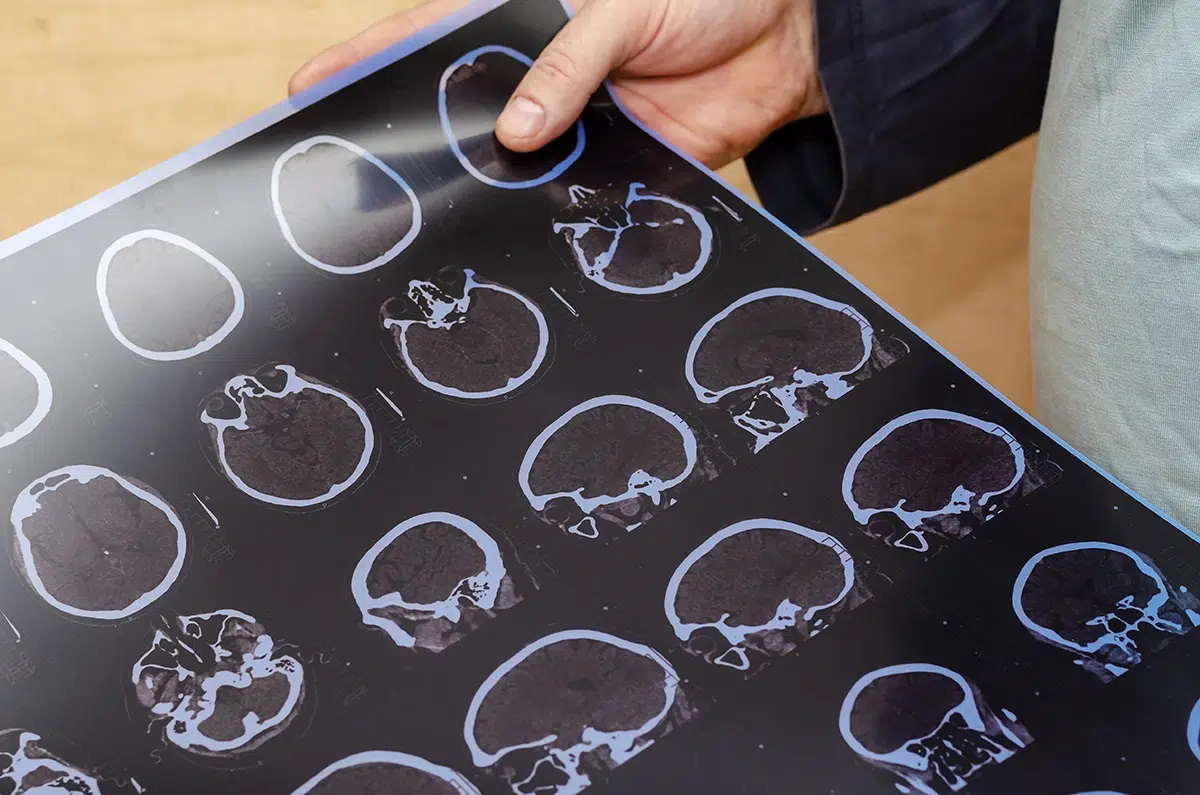At Delfino, Green & Green, we understand the havoc that severe TBIs wreak on victims and their families. That’s why we specialize in getting the compensation they need to recover. Call us at (415) 442-4646 to schedule a free consultation.
It’s hard to understand the full impact of a serious injury unless you’ve experienced it yourself. This is especially true in regards to traumatic brain injuries (TBIs), because their effects are so far-reaching.
People who sustain traumatic brain injuries don’t just suffer physically; they may suffer neurological and emotional impairments as well. TBIs can affect every area of a person’s life, cause permanent disability and, in severe brain injury cases, even change their personality.
If you or a loved one have suffered a traumatic brain injury, you’re likely facing a long road to recovery. You may need surgeries, physical therapy, routine doctor’s appointments or even around-the-clock care. Unfortunately, these medical treatments are not cheap.
Luckily, injury victims do have options. If your traumatic brain injury was caused by someone else’s negligence, you’re entitled to bring a lawsuit against them. With help from an experienced brain injury attorney, you may be able to secure the compensation you need to recover. However, doing so will depend on whether you can prove your injuries.
So how do you prove TBI in California? The first step is partnering with an experienced legal expert. Keep reading to learn everything you need to know about TBIs, how to prove them and available damages in brain injury lawsuits.
If you need help now, you don’t have to wait—contact our legal team online to schedule a free case evaluation. Our compassionate attorneys will review your case, lay out your options and present you with the best legal path forward.
What Is a Traumatic Brain Injury?
TBIs are a major cause of disability and death in the U.S. In fact, the Center for Disease Control and Prevention (CDC) estimates that there were 223,000 TBI-related hospitalizations in 2019 alone, as well as about 176 TBI-related deaths per day in 2020. Rather than just one thing, the term “traumatic brain injury” is a broad term used to describe numerous injuries to the brain. As a result, medical professionals categorize TBIs into a few different types.Types of Traumatic Brain Injuries
According to the Mayo Clinic, brain injuries are broadly defined in two ways: closed and penetrating brain injuries. Here are the characteristics of each:- Closed brain injury. A closed brain injury refers to a non-penetrating injury to the brain with no break in the skull. In other words, the brain isn’t harmed by an external object, but rather is damaged when a jolt, rapid back-and-forth movement or shaking event causes the brain to bump up against the interior walls of the skull. It can result in bruising, as well as tearing of brain tissue and blood vessels.
- Penetrating brain injury. Conversely, a penetrating brain injury occurs when an external object breaks through the skull and enters or damages the brain. An example would be a bullet that pierces the brain.
Symptoms of Traumatic Brain Injuries
TBIs vary greatly. Mild traumatic brain injuries, which are also known as concussions, don’t always have long-term effects. Depending on type and the level of severity, traumatic brain injuries may cause any number of the following symptoms:- Cognitive issues. These may include coma, confusion, memory loss, problem-solving deficits, poor judgment, poor sense of time and space, lack of awareness, difficulty understanding abstract concepts.
- Motor activity. Motor deficits may include paralysis, poor balance, muscle spasticity, poor balance, poor endurance, trouble planning motor movements, tremors, difficulty swallowing, poor coordination and more.
- Sensory. Brain damage can cause perceptual and sensory deficits that include loss of sensation or heightened sensation, changes in individual senses, inability to understand where limbs are in relation to body and vision issues.
- Communication skills. These may present as difficulties speaking, choosing the right words, reading, writing, forming sentences, identifying objects and more.
- Functional. Functional deficits refer to challenges performing activities of daily living such as dressing, bathing and eating, as well as shopping, paying bills and operating cars or other machinery.
- Social. Some brain injuries result in challenges with making and keeping friends, forming interpersonal relationships and understanding social interactions.
- Regulatory. These symptoms can present as fatigue, dizziness, headaches, changes in sleep patterns and loss of bladder or bowel control.
- Psychiatric. Personality and psychiatric symptoms may occur in the form of apathy, decreased motivation, emotional volatility, anxiety, depression and disinhibition.
How Do You Prove TBI in Court?
If you’ve read this far, you know how to identify TBI, but how do you prove TBI in court? It starts with enlisting help from a trusted personal injury law firm. A skilled brain injury attorney can help you pursue a successful lawsuit. Once in court, there are a number of things that you and your attorney will need to demonstrate in order for you to win a settlement. Before pursuing a case, consider asking yourself these four critical questions:- Can I prove that I suffered an injury?
- Can I prove the severity of my injury?
- Can I prove the long-term impact of it?
- Can I prove it was caused by an accident related to my claim?
- Medical records and medical tests, including CT scans, magnetic resonance imaging tests(MRI tests) and x-rays
- Brain mapping images and computer-generated simulations
- Diagnostic tests and their results
- Data from intracranial pressure (ICP) monitoring to demonstrate brain swelling
- Testimony from eyewitnesses
- Testimony from TBI experts
- Testimony from mental health experts
- Testimony from close family members and friends who can speak to how you’ve changed, from before your head collision to after your traumatic event, personal injury or car accident
Recovering Compensation after a TBI
Brain injury lawsuits (like other types of personal injury lawsuits) typically include both economic and non-economic damages in their settlements. Here are just some of the losses that your settlement package may include:- Medical expenses, including treatments, bills, therapies and future care
- Property damage, such as a totaled car
- Pain and suffering
- Loss of quality of life
- Permanent disability
- Lost wages
- Disfigurement and scarring



